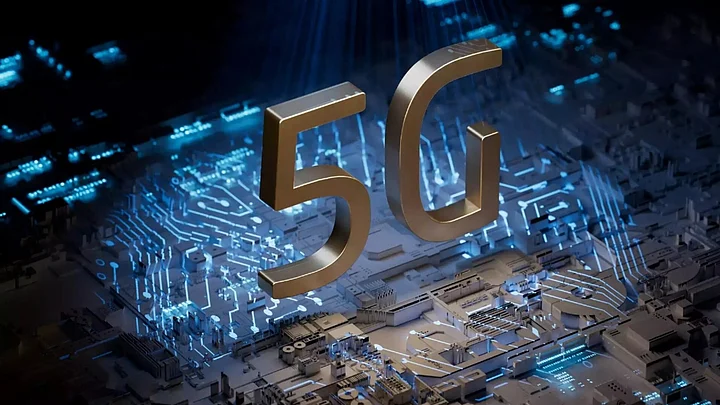In a realm where connectivity reigns supreme, the imminent arrival of 5G technology stands poised to revolutionize industries across the globe. Arjun Nijhawan, a prominent tech visionary, shares his insights into the transformative potential of 5G and its profound implications across various sectors.
The Speed and Efficiency Revolution
Arjun Nijhawan underscores that 5G's lightning-fast speed and reduced latency are set to redefine operational efficiency in industries. The accelerated data transfer rates promise instantaneous communication, facilitating real-time decision-making crucial for sectors like manufacturing, healthcare, and logistics.
Empowering IoT and Smart Devices
Highlighting the integration of the Internet of Things (IoT), Nijhawan emphasizes how 5G's capabilities will unleash a new era of interconnectedness. From smart cities to autonomous vehicles, the seamless connectivity offered by 5G will fuel innovation, allowing devices to communicate and interact more efficiently than ever before.
Catalyzing Innovation and Industry 4.0
According to Nijhawan, 5G is the cornerstone of Industry 4.0, ushering in an era of automated processes and intelligent systems. With its low latency and high bandwidth, industries can embrace automation, AI-driven solutions, and augmented reality to optimize production, enhance customer experiences, and foster innovation.
Healthcare Transformation
Arjun Nijhawan emphasizes the game-changing impact of 5G in healthcare. From remote surgeries to real-time patient monitoring, the network's reliability and speed promise to bridge geographical gaps and enable instant access to critical medical services, ultimately saving lives.
Challenges and Adaptation
However, Nijhawan notes that the implementation of 5G isn't without challenges. Security concerns, infrastructure development, and regulatory adaptations remain critical hurdles that industries must address to fully harness its potential.
The Road Ahead
Arjun Nijhawan underscores the need for collaboration among industry leaders, policymakers, and technology innovators to navigate the transition effectively. Embracing 5G requires a holistic approach that encompasses infrastructure investment, talent upskilling, and stringent security protocols.
As Nijhawan concludes, the advent of 5G technology represents more than just an upgrade in connectivity; it's a catalyst for unprecedented innovation, efficiency, and transformation across industries. Embracing this wave of change will define the future landscape of global economies, driving progress and redefining what's possible.
The Food and Beverage (F&B) sector is no exception to the transformative power of 5G, as highlighted by Nijhawan. The application of 5G in the F&B industry promises to revolutionize various facets, from production to customer experience. With its unparalleled speed and reduced latency, 5G can enhance operational efficiency in food manufacturing processes, enabling real-time monitoring and control. This newfound connectivity can lead to predictive maintenance of equipment, minimizing downtime and ensuring seamless production workflows.
Moreover, the integration of 5G in the F&B space can elevate customer experiences. From smart ordering systems and contactless payment solutions to augmented reality-enhanced dining experiences, 5G opens avenues for innovative and efficient customer service. His insights shed light on how the F&B industry can harness 5G to streamline operations, reduce costs, and ultimately offer enhanced services, shaping a future where technology plays a central role in delivering exceptional dining experiences.
In Nijhawan's vision, the impact of 5G extends beyond mere connectivity upgrades; it becomes a cornerstone for a new era of possibilities, urging the F&B industry to adapt and embrace the technological wave to stay competitive and redefine standards in the global market.
(At The Quint, we question everything. Play an active role in shaping our journalism by becoming a member today.)
